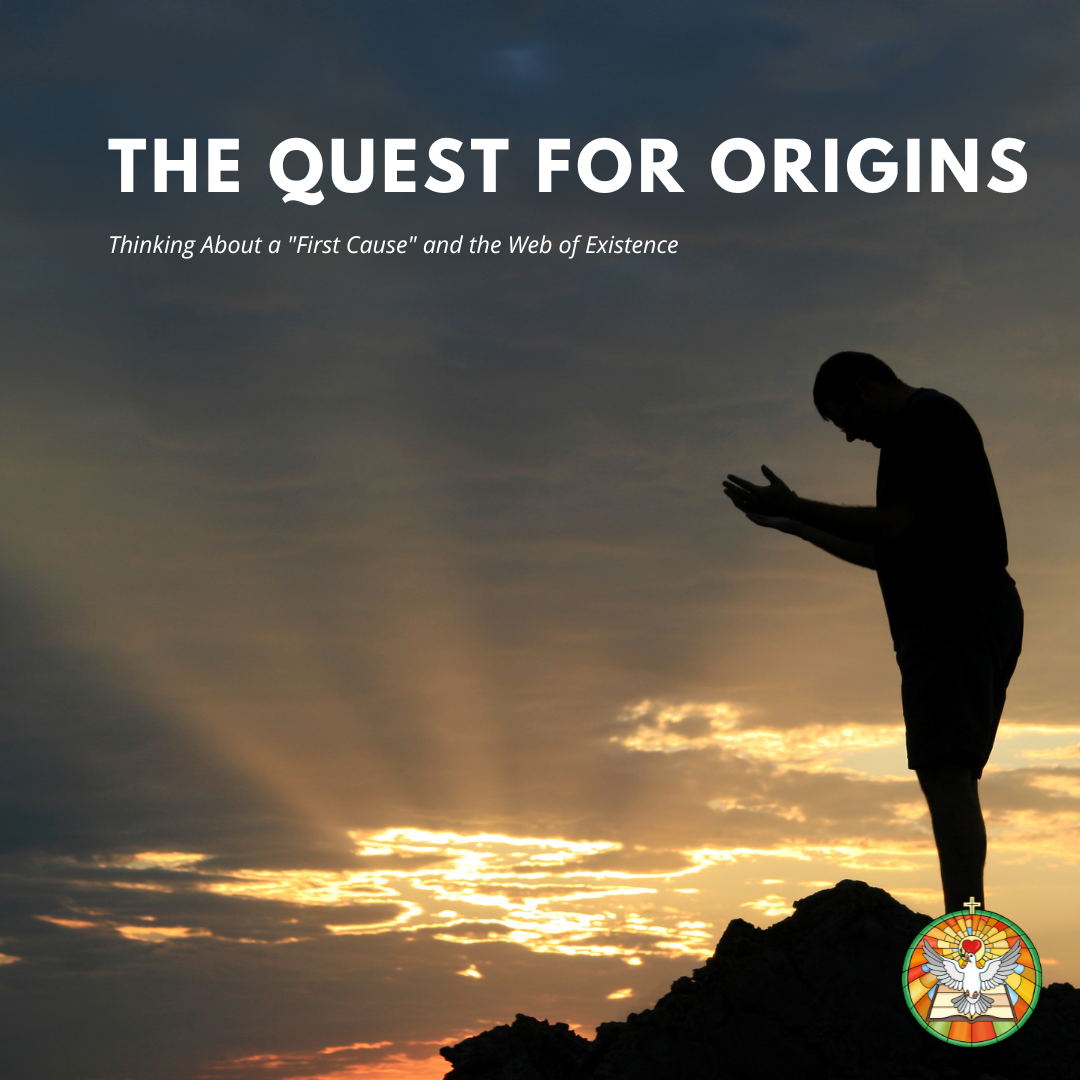
Humans have always looked at the vast universe and asked: "Where did all this come from? What (or Who) started it all?" This question about a "first cause" or ultimate origin is one of the deepest and most persistent inquiries of the human spirit. It has driven countless philosophical explorations and is at the heart of many religious traditions.
For many, this profound question leads to the concept of a Supreme Being, a Creator God, who is the ultimate source of heaven, earth, and all that exists. This understanding, central to faiths like Christianity, offers a foundational answer and a source of immense meaning, affirming that the universe is not a random accident but the purposeful creation of a loving God. Belief in God as the First Cause and Sustainer is a cornerstone of faith, offering comfort, purpose, and a framework for understanding our place in the cosmos. This faith is a response of the whole person – heart, mind, and soul – to divine revelation.
However, the human mind, in its ongoing quest for understanding, sometimes grapples with the concept of a "first cause" in ways that can lead to philosophical puzzles. If everything we experience in the world has a cause, and that cause has a cause, and so on, does this chain go back infinitely, or does it stop at an Uncaused First Cause?
When Questions About Origins Can Seem to Limit Deeper Inquiry
Historically, when people encountered mysterious natural phenomena they couldn't explain scientifically, they sometimes attributed them to specific, localized supernatural forces – a god of the wind, a spirit of the river. While these explanations satisfied a need for meaning, scientific understanding progressed by looking for observable causes and effects within the natural world – wind as air movement, floods as results of rainfall and geography. Science and faith are not necessarily in conflict; many see science as discovering the very laws God established in creation.
The philosophical challenge sometimes arises if the idea of a "First Cause" is used in such a way that it discourages further inquiry into the nature of that Cause or the intricate workings of the universe He created. For instance, if one simply says "God made it" to every question about how the universe functions, it might inadvertently close off a deeper appreciation for the complexity and wonder of the created order itself, which God has given us minds to explore and understand. The Christian tradition, in fact, has a rich history of intellectual inquiry and "faith seeking understanding."
An Ancient Perspective: The World as an Interconnected Web
Some ancient wisdom traditions, when exploring the nature of phenomena within the universe, described reality as an incredibly intricate web of interconnectedness and continuous change. From this viewpoint, every event or phenomenon arises not from a single, isolated prior cause, but from a vast network of countless interdependent causes and conditions. Each condition is also the result of other conditions, forming an infinite net of relationships where "one" thing is connected, in some way, to "all" other things.
Think about a simple object, like a bicycle. We might say it "began" when it was assembled or bought. But the materials it's made from had a long history before that – metal ore in the ground, rubber from trees, energy used in manufacturing. The design itself evolved from previous designs. Over time, the bicycle changes – parts wear out and are replaced, it gets scratched, eventually, it might break down entirely. Is it still the "same" bicycle? We recognize a continuity, but the physical substance and form are in constant flux. Even after it's discarded, its materials don't just vanish; they continue to interact with the environment, perhaps becoming part of something new.
This perspective sees everything as a "stream of phenomena" rather than a static, unchanging entity. Our minds, these traditions suggest, tend to "freeze-frame" this flow, identifying objects and experiences as fixed and separate, and then seeking a single starting point for each. This can lead to a kind of "delusion" where we mistake our mental snapshots for the entirety of a much larger, more dynamic process. We might say something "exists" when its components come together in a recognizable form, and "doesn't exist" when they disperse. But the underlying reality, from this viewpoint, is a continuous transformation. Nothing is truly "added" or "lost" in an ultimate sense from the totality of being; things merely change form and relationship.
This is like watching waves on the ocean. Each wave has an apparent beginning and end, a size and shape. But these are just temporary forms of the underlying water, which itself is not defined by the "birth" or "death" of any single wave. The "is" and "is not" of the waves don't apply to the ocean in the same way.
Beyond a Linear Chain of Worldly Causes
When these ancient thinkers applied this understanding of radical interconnectedness and continuous transformation to the universe as a whole, some concluded that if you're looking for a "first cause" within this worldly chain of cause and effect, you won't find one. The web of interdependence, from this specific philosophical lens, appears beginningless within its own terms. The question "What was the very first link in this endless chain of worldly phenomena?" might then seem ill-posed, like asking for the "first wave" in an eternal ocean.
This is not necessarily a denial of an Ultimate, Transcendent Source or Creator in the way understood by theistic faiths like Christianity. Rather, it can be seen as a statement about the limits of human reason when trying to trace back an infinite series of immanent, worldly causes and effects. God, as understood in Christianity, is not merely another link in this chain, however primary, but is the Transcendent Ground of Being, the Creator of the entire chain or web itself, existing outside of and upholding it all.
Some philosophical traditions describe Ultimate Reality as something that transcends our everyday concepts of "existence" and "non-existence" as we apply them to finite, changing things. If this Ultimate Reality "exists," it's not in the temporary, conditioned way that a wave or a bicycle exists (it might be called "Wondrous Being"). If it "does not exist," it's not in the way a dispersed wave "does not exist" (it might be called "True Emptiness" of fixed, independent substantiality, pointing to its boundless, ineffable nature). These are attempts to point towards an Absolute that is beyond our ordinary categories.
The Child and the Sense of "Being"
Consider a young child, fully immersed in the experience of living. The child simply is. They don't typically analyze their own growth, the constant change in their bodies, or the passage of time, unless prompted. They live in a more direct, unmediated experience of reality. It's often when we, as adults, step back, "objectify" ourselves or the world – comparing past to present, analyzing, conceptualizing – that we create a sense of separation and then grapple with questions of beginnings, endings, and causes in a linear way. This analytical mode of thought is valuable, but it's one way of knowing among others.
Conclusion: Deepening Our Wonder
The human desire to understand our origins is a vital part of our spiritual and intellectual journey. While simplistic answers may not fully satisfy our deepest yearnings for truth, exploring these profound questions can lead us to a greater sense of wonder and a deeper appreciation for the mystery of existence.
For people of faith, reflecting on the limits of human conceptualization and the intricate, interconnected nature of the world can enhance, rather than diminish, their reverence for God as the Ultimate Source and Creator. It can invite a more profound understanding of God not just as a "first cause" at the beginning of a linear chain, but as the ever-present, sustaining Ground of all being, whose wisdom and power are revealed in the magnificent tapestry of creation.




